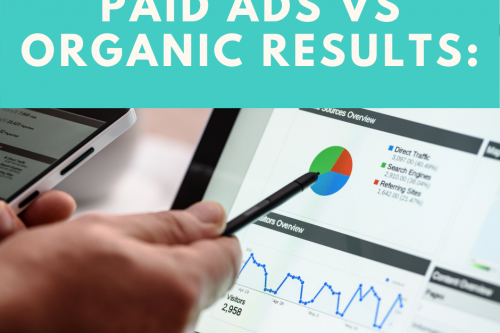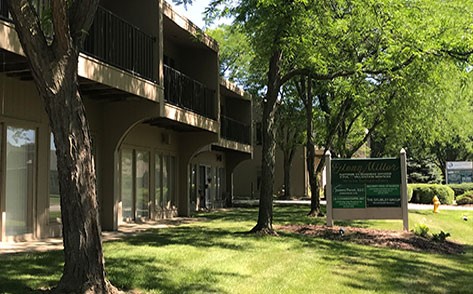Paid ads vs. organic results - how to know the difference
Reading Time:
3 minutes, 18 seconds
Paid ads vs. organic results - how to know the difference
Jumping Trout, LLC

(Impact, 2019) Search engines. We take them for granted most of the time. These powerful tools can filter what we see based on where we are and what we search for. People looking for clothing or burgers or HVAC at anytime can get mixed results depending on who pays for them. That's where your business comes in. Having a great website is one thing, but if people don't know that you exist, how can they find you?
Among the thousands of search results you get from Google, your company might be on page 11. How do you get at the top? Well, you can pay (obviously) or you can try to get there yourself (organic results). Here's the breakdown.
"Organic search traffic comes from people finding business links among search engine results. SEO (search engine optimization) influences organic search results. Paid search traffic is attributed from visitors clicking on a link in an advertisement or sponsored listing that a business has paid for in order to appear at the top of search results."
Organic Results:
When you type a question into Google (or any other search engine), the list of links that appear BELOW the ads are known as organic results. The order that organic results appear are based on the quality and content of the websites.
You can generate organic traffic to your website from people finding your link among the Google search results. This is valuable for several reasons:
There's also another way...
Paid Search:
These results are those that companies have paid to appear at the top of search results. Google ads are labeled as such, but many consumers are unaware/don't care that they're advertisements. These are always listed at the top.
Paid search has been more popular in recent years as organic search has become more competitive. Organic search can take too long to get the results you want, so payingto get seen on the top of the search results is a great option. There are many different ways to go about Google Adwords, but you need to be tactful in order for it to have the right effect. You can pay as much money as you want, but if you market to the wrong audience, no one is going to click on your link. So make sure you discuss with your marketing team.
Overall, it's important to have both (of course). You want to have a good organic SEO base before you move on to paid stuff. You'll need to sit down with your team and weigh all the pros and cons - if you don't have a lot of time, then you might want to do paid only. However, if you're looking for a budget friendly option, organic is best - it just takes longer. Don't be afraid to experiment. Look at your goals and figure which fits best.
Source: https://www.impactbnd.com/blog/organic-search-vs-paid-search
Among the thousands of search results you get from Google, your company might be on page 11. How do you get at the top? Well, you can pay (obviously) or you can try to get there yourself (organic results). Here's the breakdown.
"Organic search traffic comes from people finding business links among search engine results. SEO (search engine optimization) influences organic search results. Paid search traffic is attributed from visitors clicking on a link in an advertisement or sponsored listing that a business has paid for in order to appear at the top of search results."
Organic Results:
When you type a question into Google (or any other search engine), the list of links that appear BELOW the ads are known as organic results. The order that organic results appear are based on the quality and content of the websites.
You can generate organic traffic to your website from people finding your link among the Google search results. This is valuable for several reasons:
- Google directs the highest amount of traffic and is the most used search engine
- Google is particular about their rankings, especially what appears in the top five results for a keyword.
- Moving up in the rankings is difficult (especially if you're on the 11th page). It also takes a long time. The results on the first page of Google receive 92% of all search traffic on Google.
- The higher you are on the search list, the more likely someone is to purchase from you! (#science)
There's also another way...
Paid Search:
These results are those that companies have paid to appear at the top of search results. Google ads are labeled as such, but many consumers are unaware/don't care that they're advertisements. These are always listed at the top.
Paid search has been more popular in recent years as organic search has become more competitive. Organic search can take too long to get the results you want, so payingto get seen on the top of the search results is a great option. There are many different ways to go about Google Adwords, but you need to be tactful in order for it to have the right effect. You can pay as much money as you want, but if you market to the wrong audience, no one is going to click on your link. So make sure you discuss with your marketing team.
Overall, it's important to have both (of course). You want to have a good organic SEO base before you move on to paid stuff. You'll need to sit down with your team and weigh all the pros and cons - if you don't have a lot of time, then you might want to do paid only. However, if you're looking for a budget friendly option, organic is best - it just takes longer. Don't be afraid to experiment. Look at your goals and figure which fits best.
Source: https://www.impactbnd.com/blog/organic-search-vs-paid-search
Posted In:

